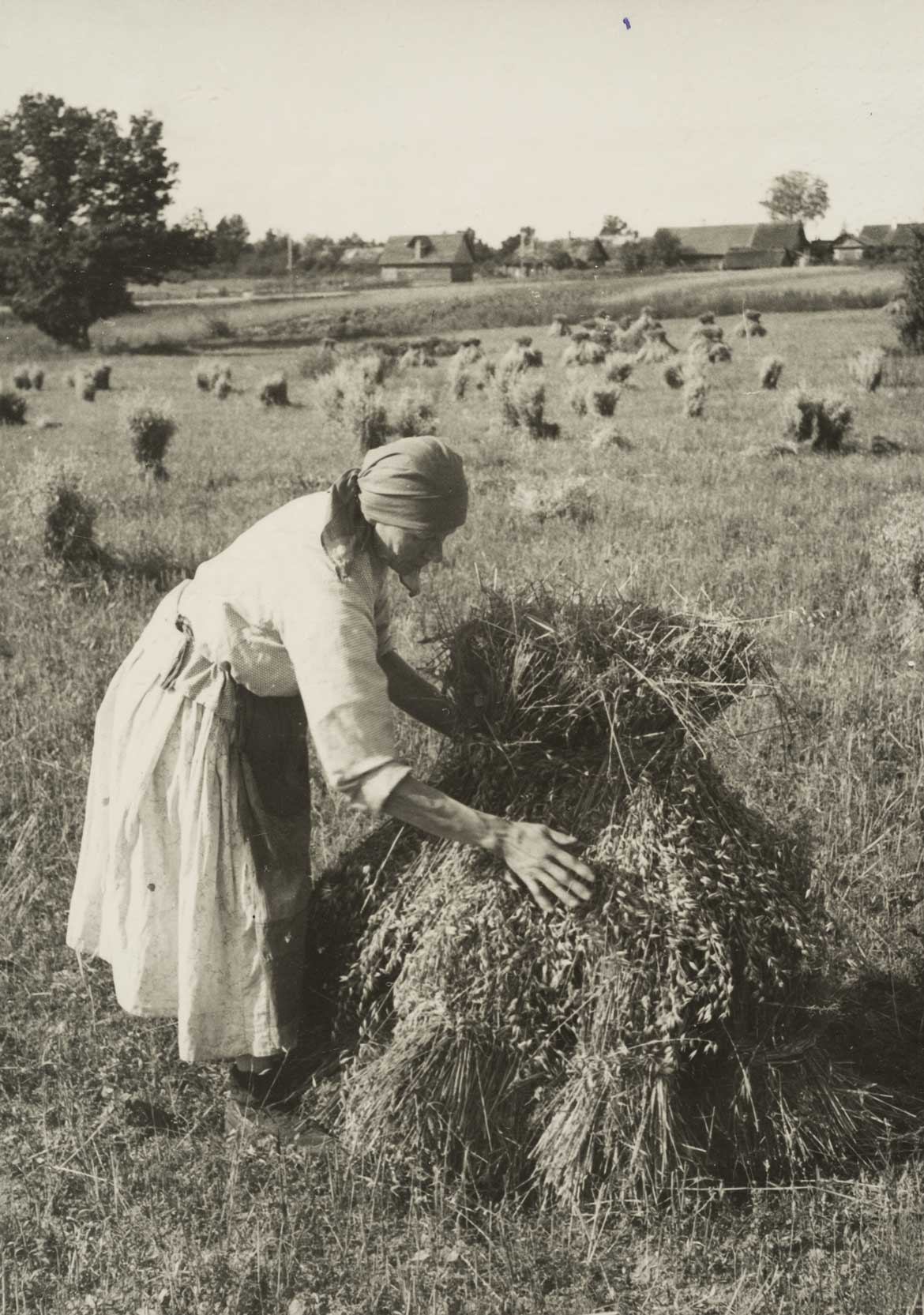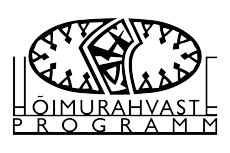Püh´ä Iiliä isäntä
(St. Elijah's Day Song)
Anna Kivisoo and choir (archive recording)
Kadi Sarv and choir
In Votian
Püh´ä Iiliä isäntä,
püh´ä Pedro armoliine,
tuõ vaa meille võõrahizõ!
Meill on viinade viiellaizede,
oluged ühessälaizõd.
Too vaa tuutšad tullõgõssa,
hattaraizõd harvukkaizõd –
meill on kagradõ kassamatta,
õdõrõd õlla õkka täünnä.
In English
St. Elijah, our master,
St. Peter, the merciful,
Come and stay with us!
We have five kinds of vodka,
Nine kinds of beer.
When you come, bring clouds along,
Thin small clouds—
Our oats are thirsty,
Barley is prickly with thorns.
In Votian written language
Püh´ä Iiliä isäntä,
püh´ä Pedro armoliine,
tuõ vaa meille võõrahizõ!
Meill on viinõde viiellaizõde,
olued ühessälaizõd.
Too vaa tuutšad tullõ’õssa,
hattaraizõd harvukkaizõd –
meill on kagrõdõ kassõmattõ,
õzõrõd õlla õkka täünnä.
St. Elijah’s Day (Votian iiĺää päivä < Russ. ильин день, August 2) was celebrated in every Votian village. In several villages, the celebration was particularly special—it was a major communal village feast where outsiders were not welcome and which had retained the features of an archaic feast called vakkovõ. The name of the feast is shared by Votians and Ingrians and has old Baltic-Finnic roots, while other names of the feast derive from Russian language (brattšina < братчина, klattšina < складчины). Participants brought malt and food to the communal feast with food and beer; people ate and drank and lighted a bonfire. In the song praying for rain, St. Elijah’s is addressed with a prayer that he would send rain. The song was fairly well-known in western Ingria. Oudekki Figurova herself has said: Se on Soikola virsi, Iiliä, se on Soikola praaznik (’It is Soikola’s song, St. Elijah’s, it is from Soikola’s feast’). She had heard the St. Elijah’s song namely from people from the Soikola (Soikino) village.
People believed that hay dries well until St. Elijah’s Day. This day also marked the sending off of the summer, since after that the weather became colder.
T Oudekki Figurova, Rajo (Ariste 1986: 38, 83; Paul Ariste, Aino Valmet, Ingrid Rüütel 1966, RKM, Mgn II 1236 d).
M Anna Kivisoo, Ropsu, and choir (Lauri and Aili Laiho-Simonsuuri 1937, ERA, Pl 127 A1).
A Anna Kivisoo and choir (Lauri and Aili Laiho-Simonsuuri 1937, ERA, Pl 127 A1).

A woman making an oat stack on a field in Mati (Mattiya) village. Photo: G. Ränk, 1942 (ERM Fk 1007:158).





